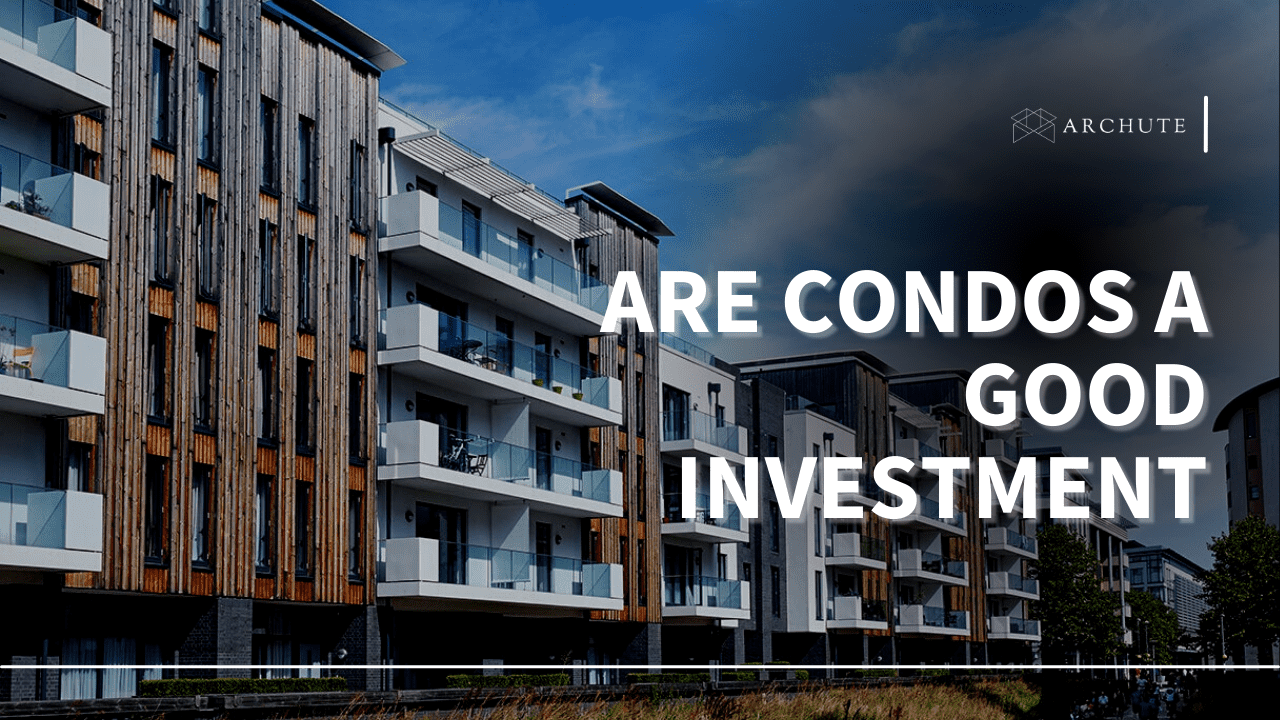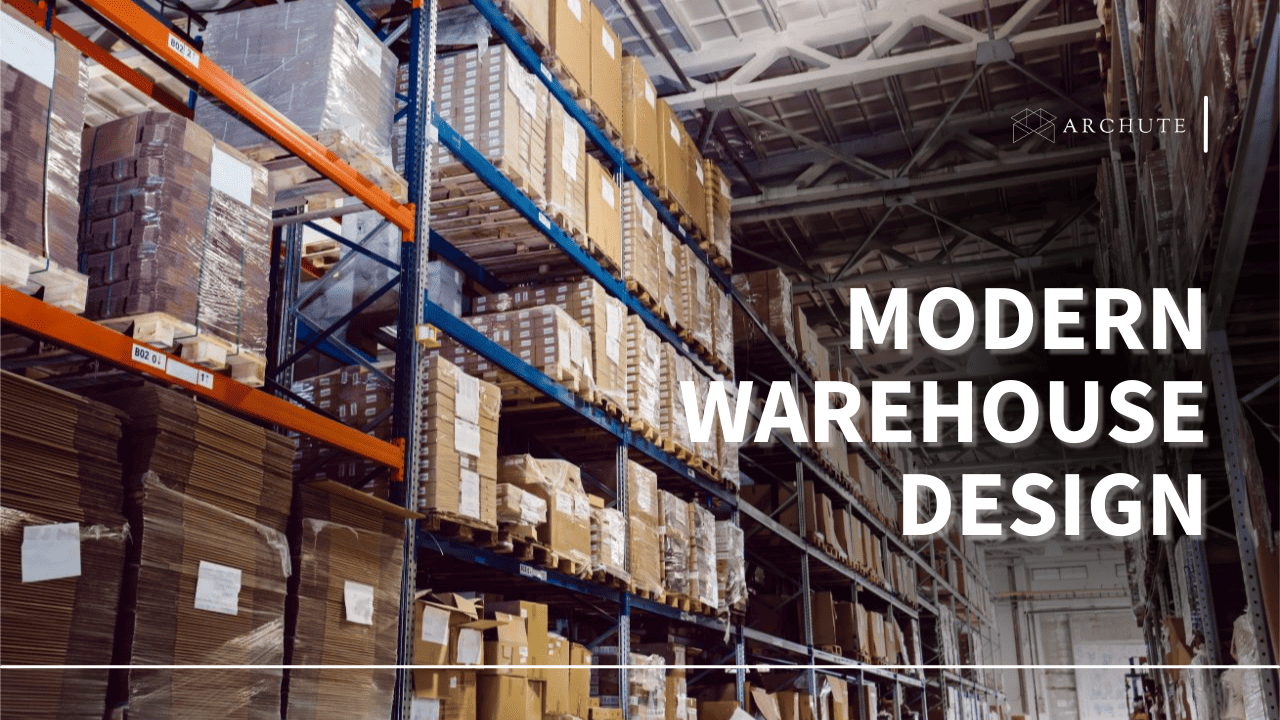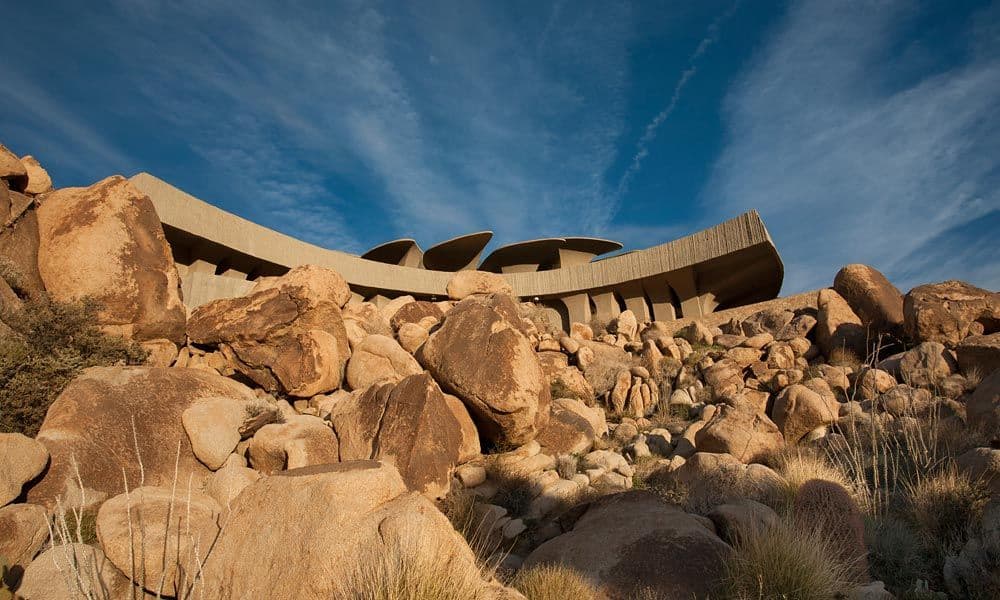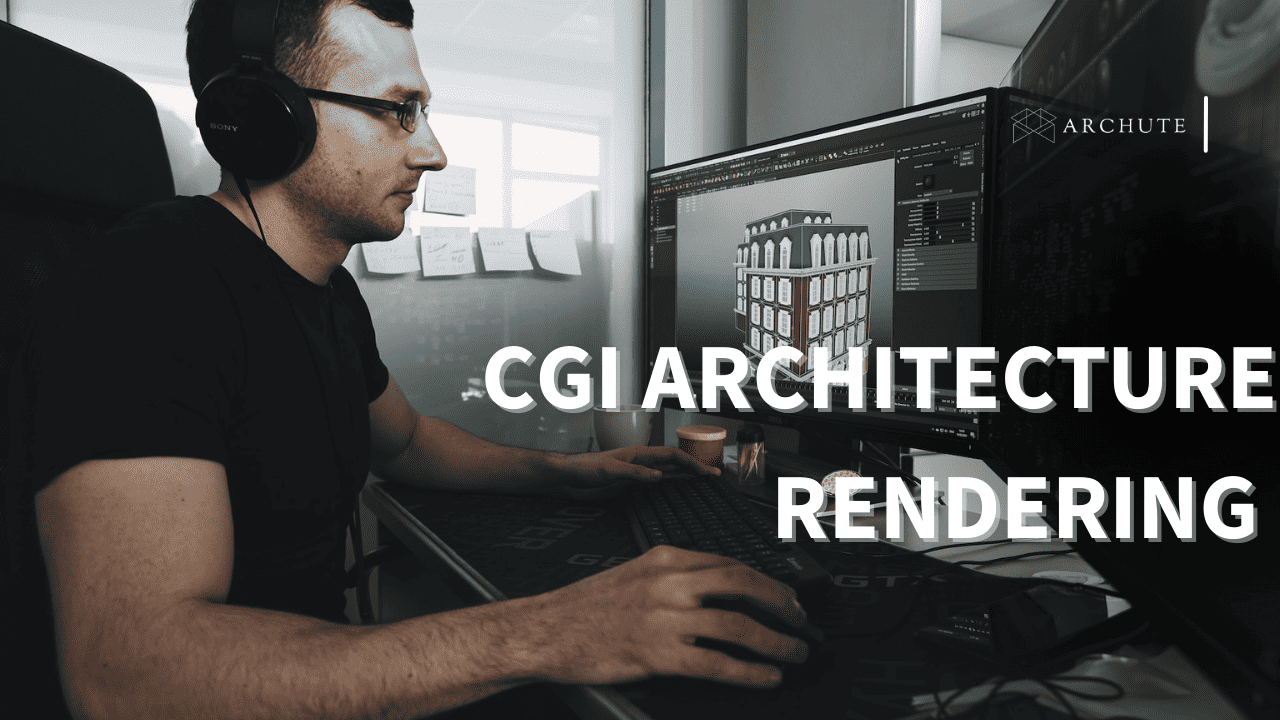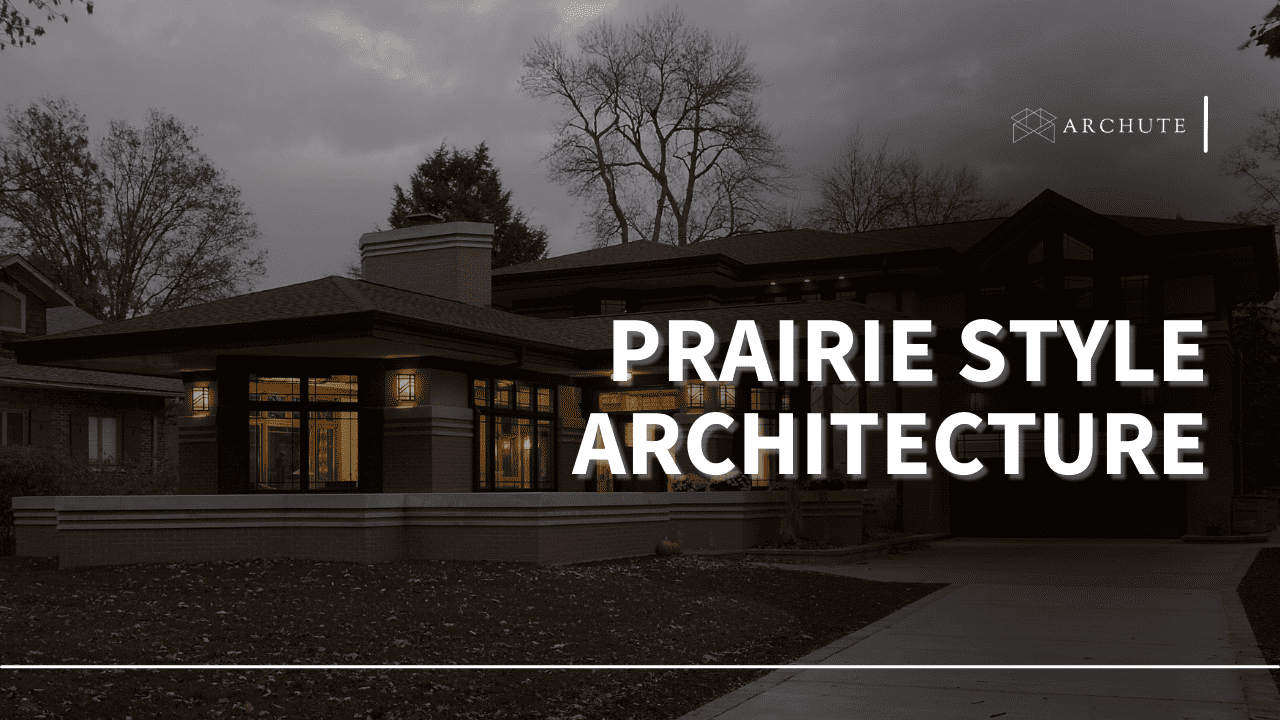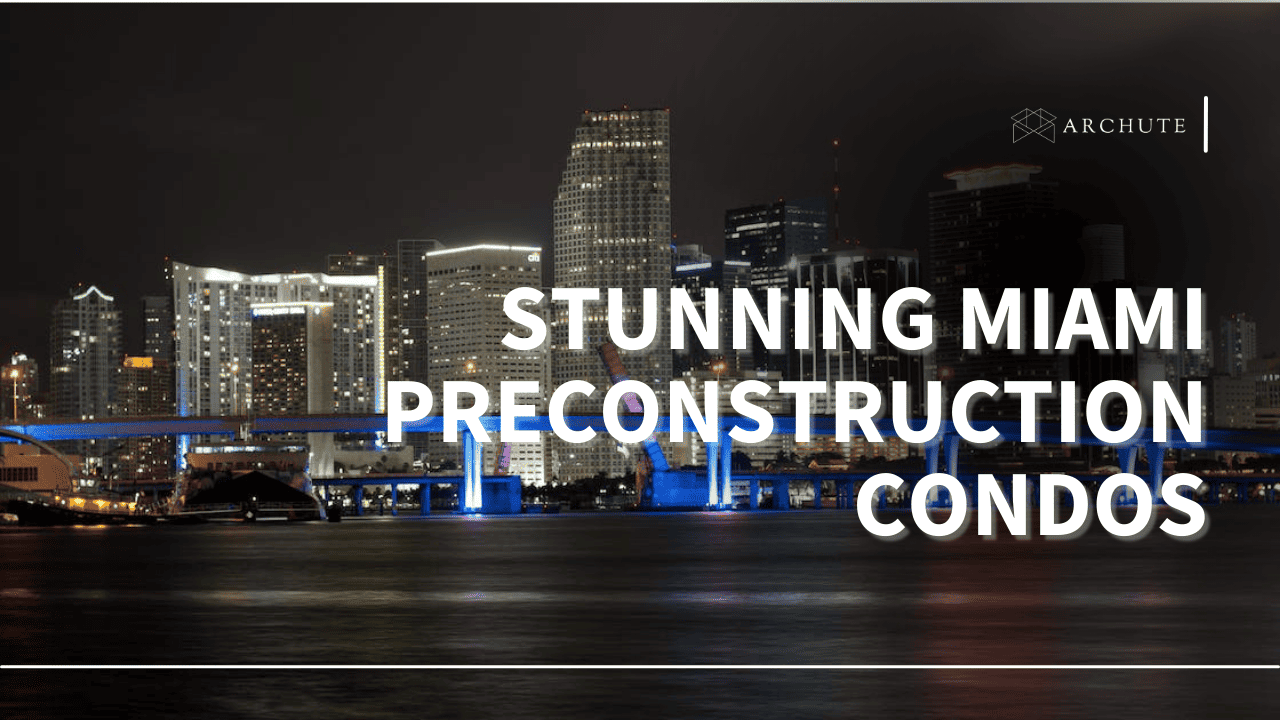If you’re looking to invest in real estate, few places can offer growth potential, like a condo. However, before venturing into this path, we must ask, are condos a good investment? Ofcos they are! Our article provides facts that show why condos are a good investment.
Let’s get started!
It’s no secret that the Great Recession of 2008 brought on a wave of foreclosures that swept the country and left many homeowners struggling to make ends meet. During the housing crisis brought on by the Great Recession, more than 6 million American households lost their homes to foreclosure.
This number implies that many people lost their homes and could no longer afford them. If you had invested in a condo instead of buying a home, your money would have been safe. Condos are especially appealing because they typically have lower maintenance costs than single-family homes and are often located in vibrant urban areas with high rents.
What Is a Condo?
A condo, short for “condominium,” is a type of real estate property that is individually owned but part of a larger complex or building that contains multiple units.
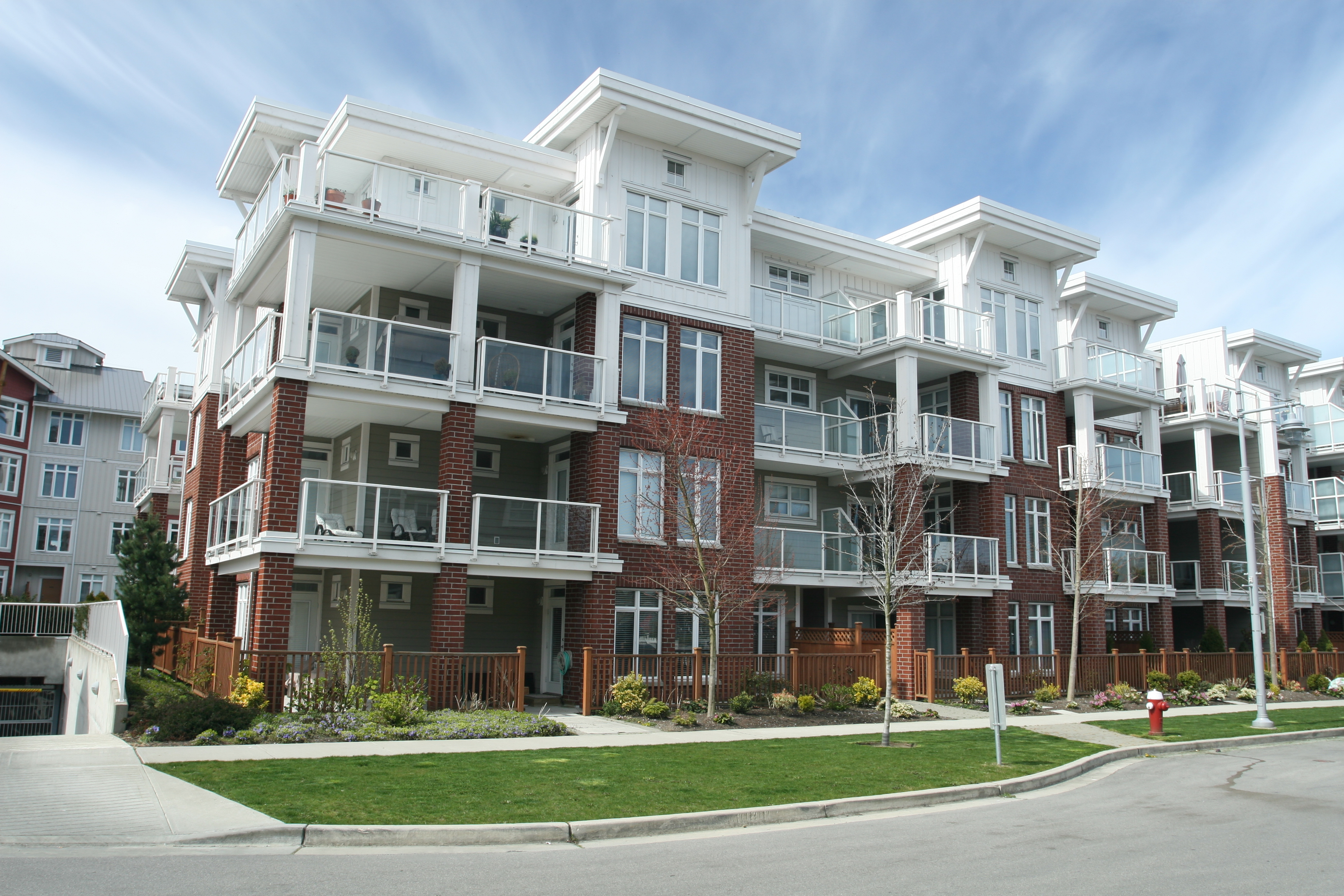
Image credit: dialalaw.peopleslawschool.ca
Condos are similar to apartments in that they are usually situated within a larger building or condo community but differ in that they are owned rather than rented.
In a condo, the individual owner typically owns the interior space of their unit. In contrast, all the condo owners jointly own and maintain common areas and facilities, such as hallways, elevators, and amenities like a swimming pool or gym. Condo owners also usually pay monthly fees to condo associations or boards, which helps manage and maintain the common areas and facilities.
Condos are popular among those who want to own their property but prefer the convenience and shared amenities of a larger building or community. They are commonly found in urban areas and can range in size from small studios to large multi-bedroom units.
Is It a Good Idea to Invest in a Condo During a Recession?
1. Many Homebuyers Are Motivated by Low Prices
Condos are a great investment during a recession because they offer homebuyers the opportunity to get into the condo market at a lower price.
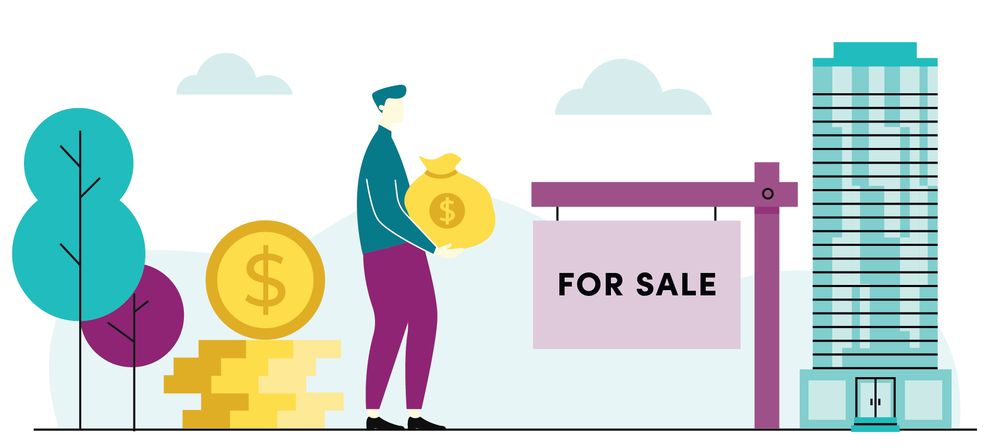
Image credit: condos.ca
Federal Reserve Economic Data indicates that the median price of homes sold in Q4 of 2020 was $358,700. Meanwhile, the average sales price of existing condominium and cooperative residential properties in the United States was $266,300 in 2020, as per Statista. Hence, the cost of condos was 25.7% less than what homes were selling for on average during that period.
This means that if you’re looking to invest in real estate but don’t have enough money to buy an entire house, buying a condo is a much cheaper option than buying a home and renting out rooms to tenants or roommates.
Second, suppose you own a condo, and your neighborhood experiences an economic downturn. In that case, your home’s value will be less affected than if it were an apartment or single-family home because you only own part of a building instead of all of it.
Also, suppose there is an influx of new condominiums into your neighborhood. In that case, this could also increase demand for your condo because people who want to live there may not be able to afford those newer buildings but could afford yours instead.
2. Buyers Have More Negotiating Power
Buyers, indeed, have more negotiating power during a recession. This is because buyers know that sellers are desperate to sell their homes, so they’re willing to make concessions they might not usually make to get the house off their hands.

Image credit: condos.ca
The Joint Center for Housing Studies at Harvard University found that housing prices decreased in four of the five recessions since 1980. This means that when people try to sell their homes, they must be more flexible about their asking price. But it also means that if you’re considering buying a home, you’ll have more leeway when negotiating with sellers and can get a better deal than usual.
For example, if you’re buying a house in a recession and the seller has been living in it for a while, they might be willing to give you a lower price than they would otherwise because they want to move on from living there. Or if you’re buying a home from another person trying to sell their house, they may be more willing to let you negotiate the price down to get rid of it faster than they would otherwise.
During the Recession, you also have more control over renovations in the condo, which means you can make it fit your needs better than before. This could mean adding an extra bedroom or bathroom or making it look more modern and cleaner.
Why Should Homeowners Invest in Condo Renovation?
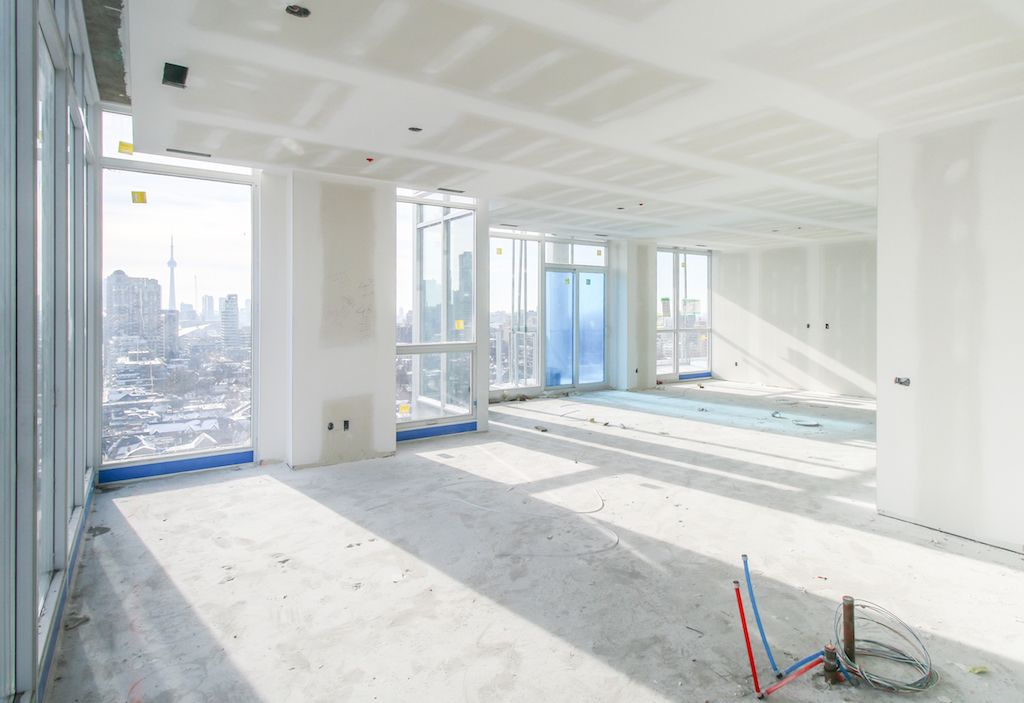
Image credit: livabl.com
For starters, it’s one of the most cost-effective ways to increase your home’s value without spending too much money upfront. You can use your existing funds from your down payment or mortgage payment savings account to pay for any upgrades or repairs needed before returning your property to the market later on down the line.
3. Less Competition
If you want to buy a condo in the US, the good news is that the Recession has created less competition. There’s no doubt that condos are a good investment during a downturn.
In the United States, the homeownership rate was 65.5% in 2021, as per Statista. This means most people are looking not to buy homes but for cheaper options like condos. Moreover, the Recession has made it harder for people to get mortgages for homes with high prices and low-interest rates. That’s why more people are looking into apartments and condos as an alternative way of owning property.

Image credit: tangerine.ca
During times of economic prosperity, more people are looking to buy condos. This increases the competition between buyers and drives up prices. But fewer people have the resources or desire to buy a condo when the economy falters. This creates less competition among condo buyers during recessions.
4. Fewer Maintenance Responsibilities
Condos are a great investment during a recession because they have fewer maintenance responsibilities. Condos are typically in multi-unit residential buildings, meaning you’re responsible for much less than you would be if you owned an individual home.
The homeowner’s association that typically comes with condos maintains the structure and common areas. Not even watering the lawn or making repairs will concern you. And while this might seem like a small perk, it can be a major relief when trying to save money or get through a stressful life.
In addition, condominiums have shared walls with other units so that each team can access shared common areas such as gardens and parking lots without worrying about maintaining those areas themselves.
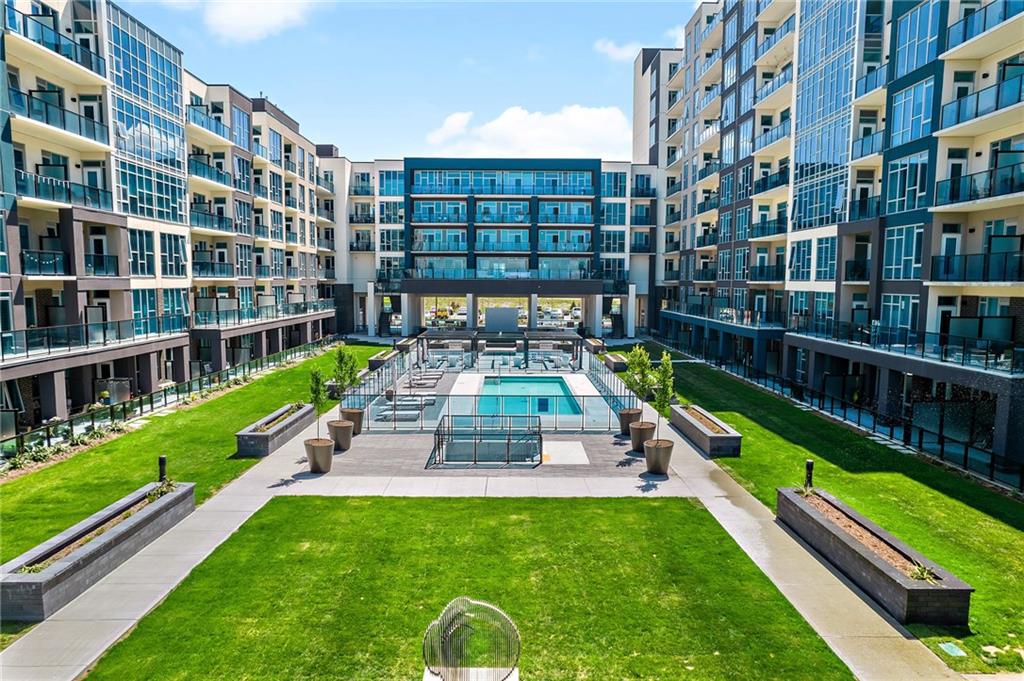
Image credit: property.ca
This means that the owner only has to pay for things like landscaping expenses instead of paying for everything from plumbing repairs to roof replacement costs on top of those expenses as well.
5 Considerations Before Buying Your First Condo
Buying a condo is a big decision, and it’s important to consider all the pros and cons before you decide where to invest your money. These five questions will help you decide based on practical aspects rather than just being emotional.
1. Does the Building Have Any Amenities?
Amenities can add value to the property and make a living in the building more convenient and enjoyable for you and potential tenants if you plan to rent it out.
It’s important to remember that amenities can come with additional costs, such as higher monthly maintenance condo fees or special assessments. It would be best if you also asked about the availability and usage policies for the amenities to ensure that they meet your needs and lifestyle.
2. Are There Any Special Rules Regarding Parking or Pets That Might Affect Your Decision?
Ask about the availability of parking spaces and whether they come at an additional cost. Also, inquire about any rules or restrictions regarding parking, such as designated spots or guest parking. Some buildings may limit the number of parking spaces available or have a first-come, first-served policy.
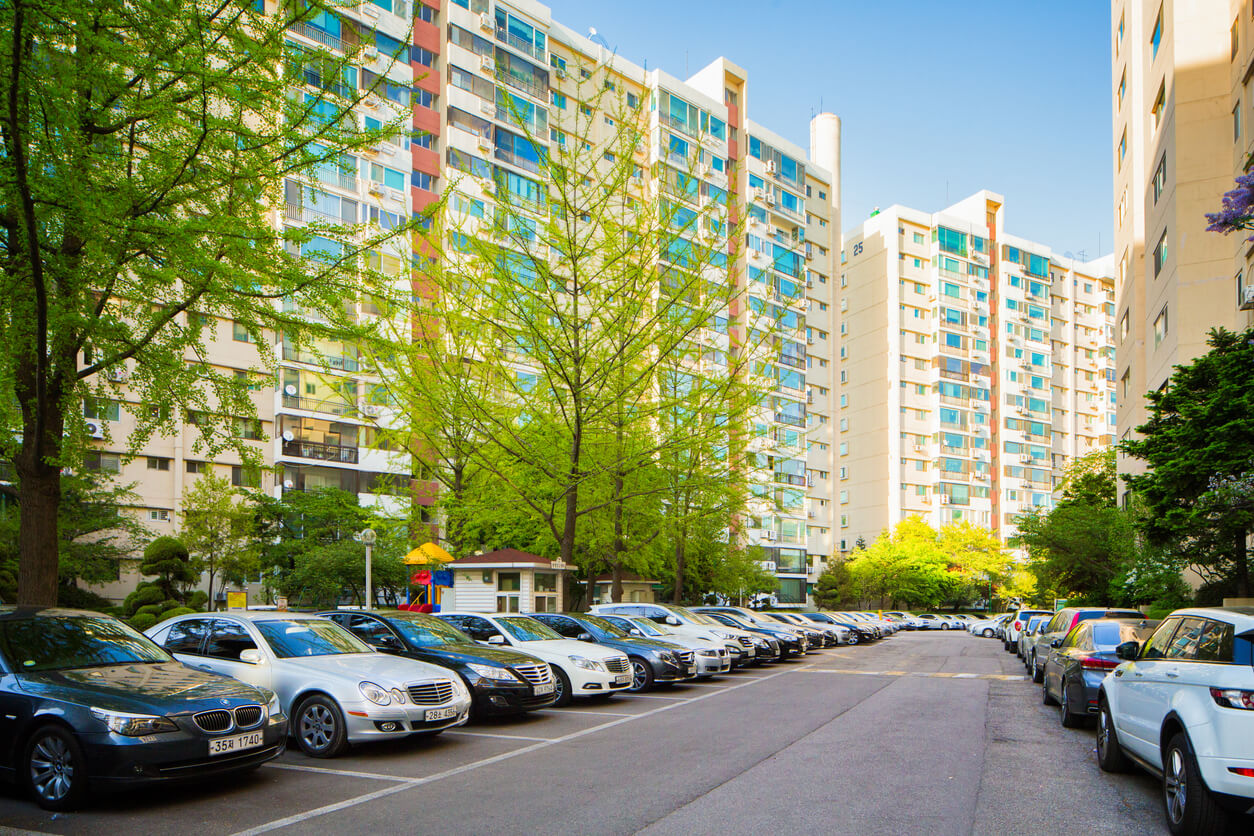
Image credit: condocontrol.com
If you have pets or are considering getting one, it’s important to ask about any pet rules or restrictions in the building. Some buildings may have breed or weight restrictions or prohibit certain types of pets altogether. Others may require pet deposits or have additional fees for pet-related damages.
Ask about any noise restrictions in the building, especially if you’re considering living in a high-density urban area. Some facilities may have rules prohibiting loud music or parties or requiring quiet hours during certain times of the day.
Understanding these rules and restrictions is important to ensure you can comfortably live in the building and enjoy your new home.
3. What Is the Average Resale Price of Condos in My Area?
Knowing the average resale price can give you an idea of the potential return on your investment and the property’s overall value. Here are a few things to keep in mind when asking about resale prices:
1. Market Conditions
The average resale price can vary depending on the current market conditions in the area. If the market is strong, you may see higher resale prices, while a weaker market may lead to lower ones.
2. Comparables
Look for comparable properties that have recently sold in the area. This will give you a better idea of the actual resale price of condos in the area.

Image credit: therealdeal.com
3. Appreciation Potential
Consider the appreciation potential of the property. Some areas may have more potential for appreciation than others, which could affect the resale price in the future.
4. Time on Market
Consider how long properties typically stay on the market in the area. A longer average time could indicate a slower need, affecting the resale price.
By asking about the average resale time of condos in the area, you can better understand the market conditions and make a more informed decision about the property’s potential value.
4. How Old Is the Structure, and How Well-Maintained Is It?
A well-maintained building will typically require less maintenance and repairs, saving you money in the long run. Here are some things to keep in mind:
1. The Structure’s Age
Ask about the age of the building and when it was last renovated. This will give you an idea of the overall condition of the building and its systems, such as the electrical and plumbing systems.
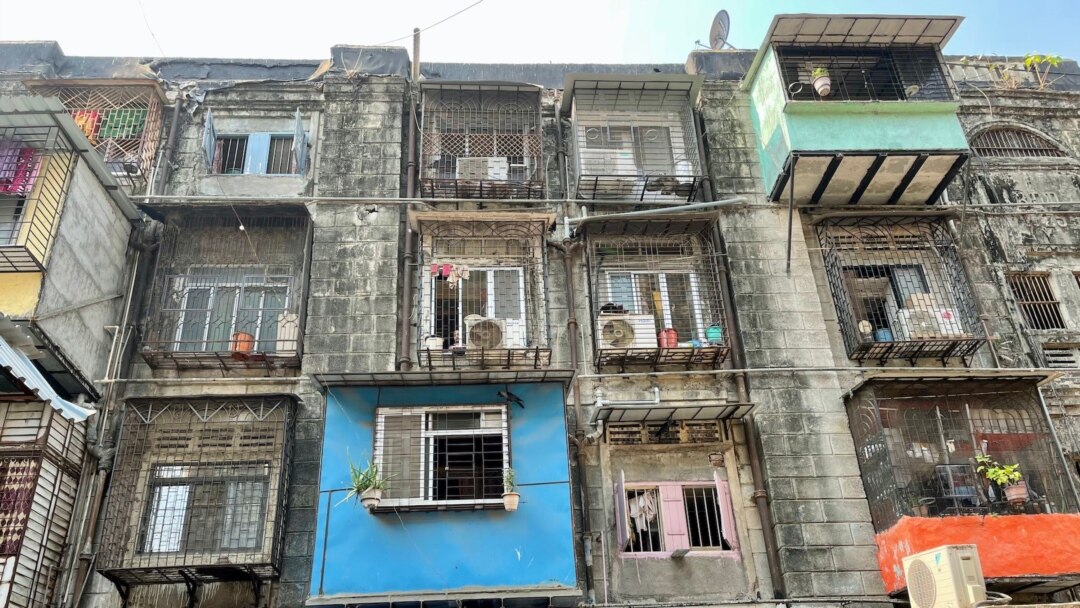
Image credit: voanews.com
2. Maintenance history
Ask about the building’s maintenance history, including any repairs or upgrades that have been made. This can give you an idea of the building’s overall condition and whether it has been well-maintained over the years.
3. Building Inspections
Consider having a professional building inspection performed before making a purchase. This will help identify any potential problems or issues with the building that you may not have been aware of.
4. Condo Association and Reserve Funds
Please inquire about the condo association fees and their reserve funds. Well-run associations typically have reserve funds that are set aside for maintenance and repairs. You can ask to review the association’s financial statements to get an idea of their financial health.
5. What Is the Cost of Upkeep or Repairs for a Condo in This Building?
Understanding the ongoing costs of owning a condo is important to ensure it is a wise investment. Here are some things to keep in mind:
1. Monthly Maintenance Fees
Ask about the monthly maintenance fees and what they cover. Maintenance fees typically cover common areas, building insurance, and repairs and maintenance to the building’s systems, such as elevators and HVAC systems. Be sure to ask what is and isn’t covered to understand what additional costs you may incur.

Image credit: s-ehrlich.com
2. Special Assessments
Inquire about any special assessments that may be required in the future. These are additional fees charged to owners to cover the cost of unexpected repairs or upgrades to the building. It’s important to understand what special assessments may be required in the future so that you can plan for these additional costs.
3. Renovation Restrictions
If you plan to renovate your condo, ask about any restrictions or requirements that must be met. Some buildings may have rules that limit the types of renovations that can be done or may require approval from the condo association before any changes can be made.
4. Building Warranties
Inquire about any warranties that may be in place for the building or its systems. These warranties can protect against unexpected repair costs and help ensure the building remains in good condition.
Pros of Investing in a Condo
Investing in a condo can have several advantages, including:
1. Lower Cost of Entry
Condos are generally less expensive than single-family homes, meaning the cost of entry into the real estate market is lower. This can be especially beneficial for first-time homebuyers or real estate investors looking to build portfolios.

Image credit: roadhousehomes.ca
2. Shared Amenities
Condos often have shared amenities like a pool, gym, or clubhouse. These amenities can be expensive to maintain if you own single-family homes, but with a condo, the cost is shared among all unit owners. These amenities can also make your property more attractive to potential renters.
3. Lower Maintenance
Condos often have a homeowners association (HOA) responsible for maintaining the exterior of the building, landscaping, and other common areas. This means that you may have less maintenance to worry about than if you owned a single-family home.
4. Rental Income Potential
Condos can be a great source of rental property income, especially if they are located in a desirable area. This can be a way to generate passive income, and the shared amenities can be an attractive selling point to potential renters.
5. Location
Condos are often located in urban or highly sought-after areas, which can provide access to public transportation, shopping, dining, and entertainment. This can be a big advantage for those who want to live in a desirable location but may not be able to afford a single-family home in that area.
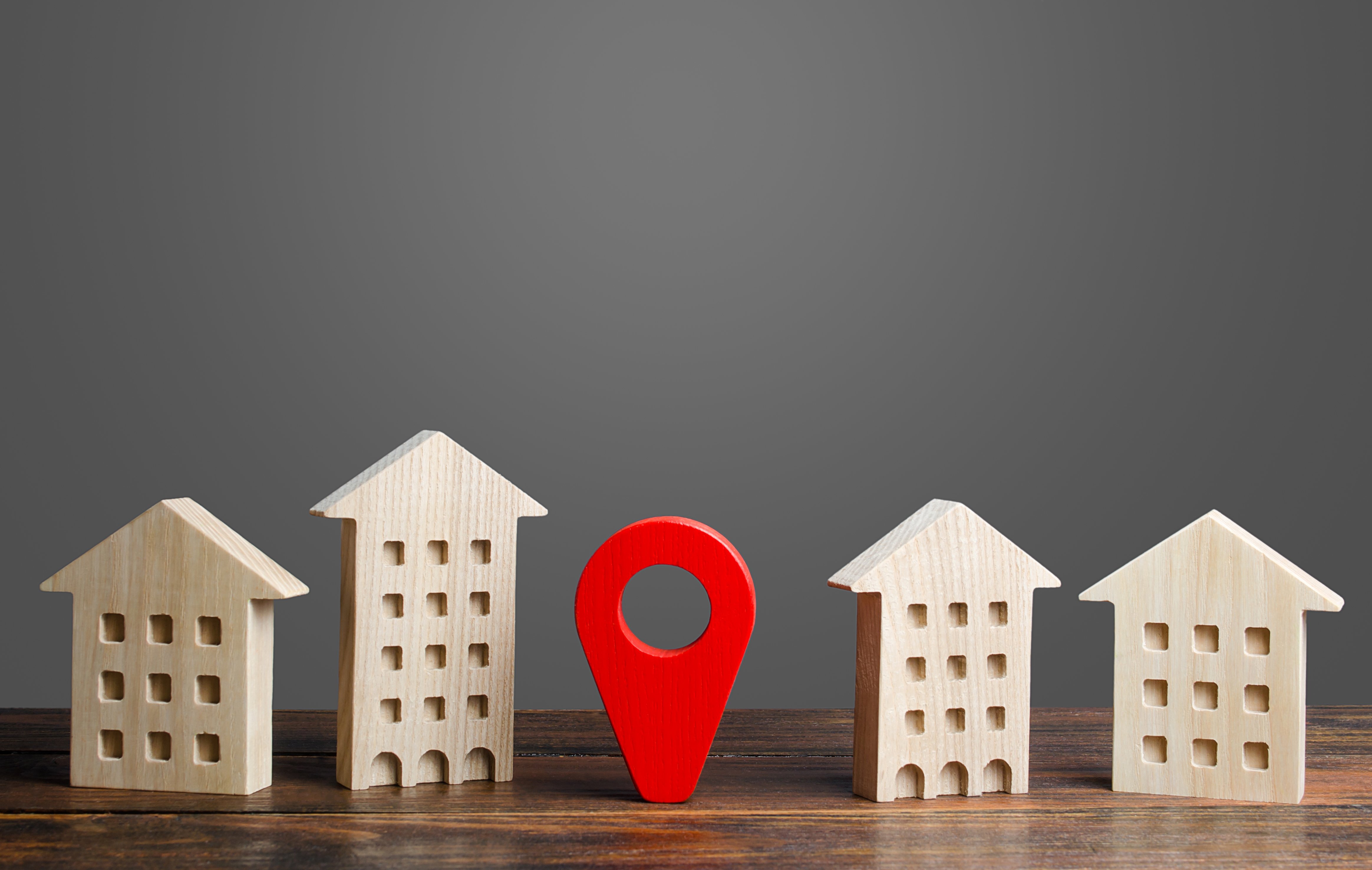
Image credit: vistaresidences.com.ph
Cons of Investing in a Condo
There are several potential drawbacks to investing in a condo, including:
1. Monthly Fees
Condos often come with monthly maintenance fees, which can be quite high depending on the building’s amenities and location. These fees can cut your profits, especially if the property is vacant or you cannot find a tenant.
2. Limited Control
As a condo owner, you may have limited control over certain aspects of the property, such as the building’s maintenance and management. In addition, you may be subject to rules and regulations set by the association of condos, limiting your ability to change the property.
3. Market Fluctuations
Like any investment, the value of a condo can rise and fall depending on market conditions. If you buy at the wrong time, you may lose money or have to hold onto the property longer than planned.
4. Special Assessments
In addition to monthly maintenance fees, condo owners may be subject to special assessments for unexpected repairs or improvements to the building. These can be expensive and add to the overall cost of owning a condo.
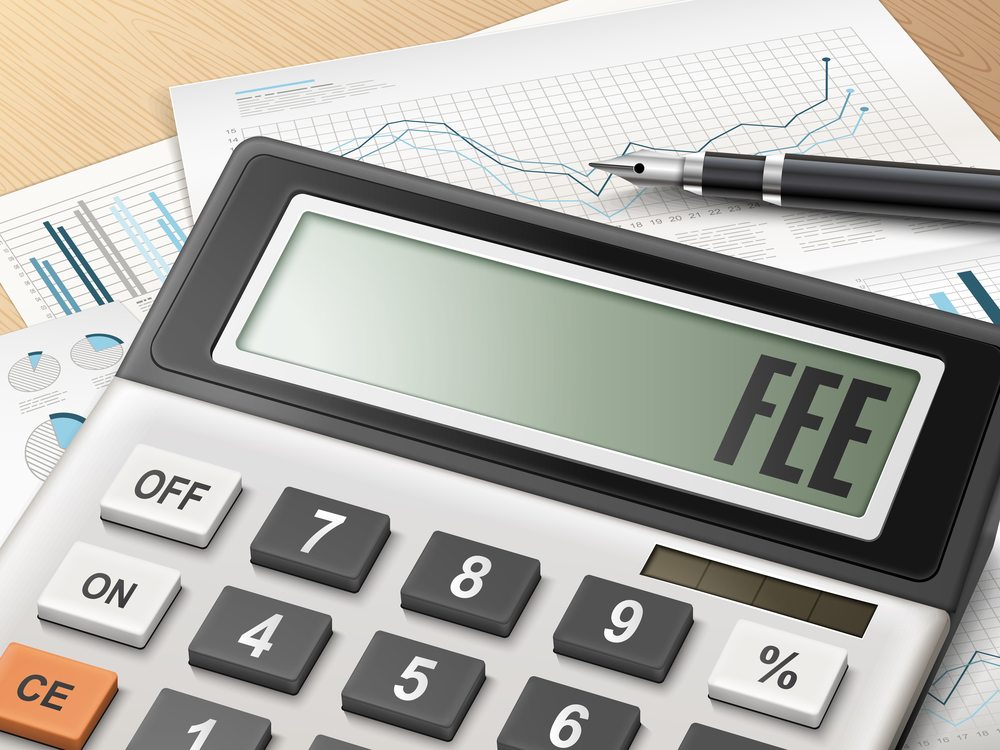
Image credit: freeave.live
5. Limited Appreciation Potential
Condos may not appreciate as quickly or as much as other properties, such as single-family homes or multifamily units. This can limit your profit potential when you eventually sell the property.
6. Difficulty Selling
Condos can be more difficult to sell than other properties, especially if many units are on the market or the building has a negative reputation. This can make it harder to get a good return on your investment.
Frequently Asked Questions for Investing in a Condo
a) How do I finance a condo investment?
You can finance a condo investment using a mortgage, just like you would with a traditional home. However, you may need to pay higher, as lenders view condos as riskier investments than single-family homes.
b) What should I look for when investing in a condo?
It would be best to look for factors such as the location, the condition and age of the building, the quality of the amenities, the HOA’s financial health, and any rules and regulations that may affect your return on investment.
c) Can I rent out a condo that I own?
Yes, you can typically rent out a condo you own, either short-term or long-term. However, you should carefully review the condo association’s rules and regulations regarding renting, as there may be restrictions or requirements that you need to follow.
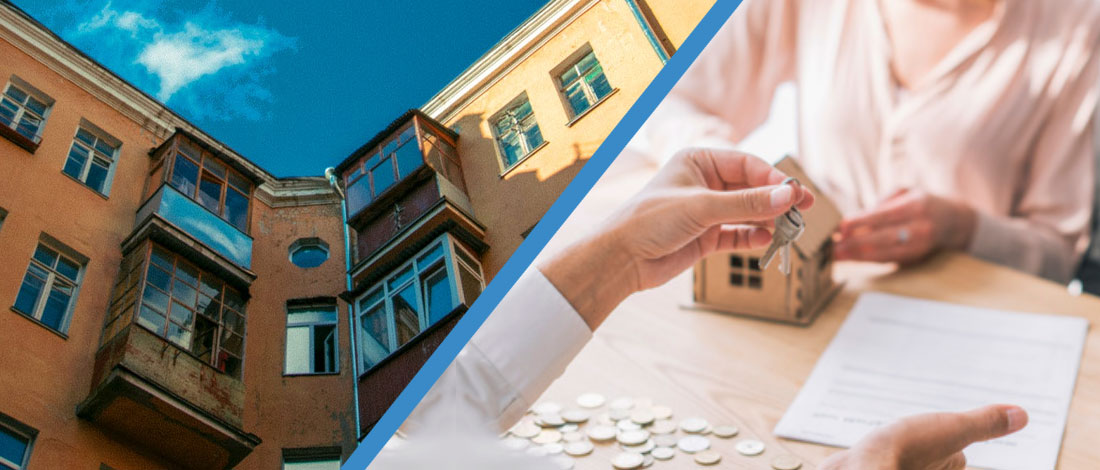
Image credit: precondo.ca
d) How do I evaluate the financial health of a condo association or HOA?
You should review their financial statements, including their budget, income statement, and balance sheet. Look for signs of financial stability, such as adequate cash reserves, stable income and expenses, and a well-funded reserve account for future repairs and maintenance.
e) Can I use a property manager to help manage my condo investment?
Yes, a property manager can handle tasks such as finding and screening tenants, collecting rent, and handling repairs and maintenance.
f) Should I invest in a new or older condo building?
Whether to invest in a new or older condo building depends on various factors, including the location, the quality of the building and amenities, and the overall condition and maintenance of the property. Newer buildings may offer more modern features and amenities but have higher upfront costs. Older buildings may be less expensive but require more maintenance and repairs.
g) What Is the typical process for buying a condo as an investment property?
The process for buying a condo as an investment property is similar to buying any other type of real estate. You’ll typically start by finding a property that meets your investment when working with a real estate agent to make an offer and negotiate the purchase. You’ll need to secure financing, such as a mortgage loan, and pay closing costs. Once you own the property, you can rent it out to tenants.
h) How can I estimate a condo investment’s potential return on investment (ROI)?
You’ll need to consider the purchase price, monthly expenses (including mortgage, taxes, insurance, and condo fees), potential rental property income, and any cost of necessary repairs or improvements. Use these numbers to calculate your net cash flow and projected ROI mgr time.

Image credit: online.hbs.edu
i) How can I minimize the risks of investing in a condo?
It’s important to do your research and due diligence before making a purchase. This includes evaluating the building’s financial and legal history, reading through the condo association’s rules and regulations, and working with experienced professionals (such as a real estate agent, attorney, and home inspector) to ensure that you are making an informed decision.
j) Are there tax benefits to owning a condo investment?
Yes, a condo investment can come with tax benefits such as deductions for mortgage interest, property taxes, and depreciation. It is important to consult with a tax professional to understand your investment’s specific tax benefits and requirements.
In Conclusion
Due to their affordability and ease of maintenance, condos are a fantastic investment during a recession. You can buy them with a lower down payment, and they are cheaper than an apartment or house. They also come with amenities that you won’t need to pay for.

